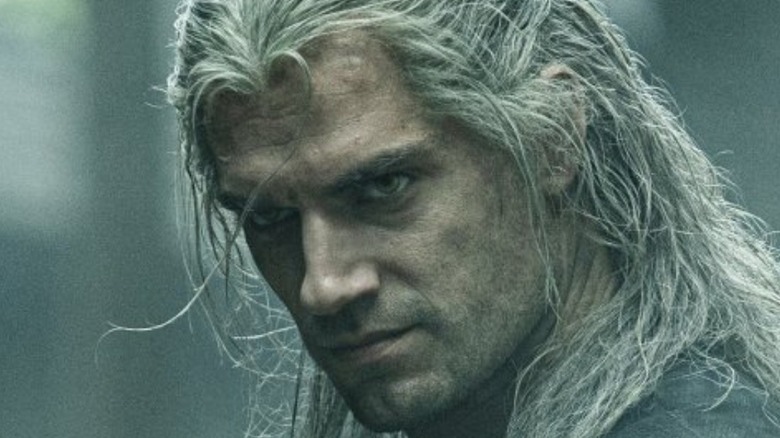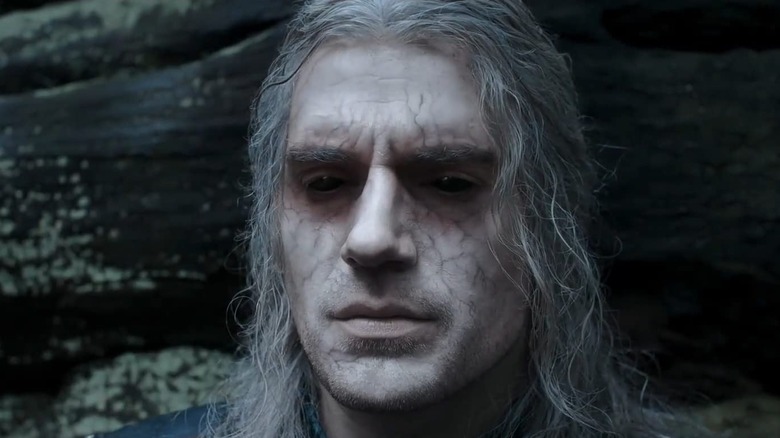How Elder Speech From The Witcher Was Actually Created
Constructed languages, including the artificial languages created by writers for fictional settings, have been a staple in fantasy fiction since J.R.R. Tolkien authored his famous tales of Middle-earth (via Babbel). A language professor by trade, Tolkien likely had a much more vested interest in the arduous process of creating Elvish, Dwarvish, and the other languages of his world than the average writer. Nevertheless, that hasn't stopped legions of fantasy authors without the same language expertise from following in Tolkien's footsteps, much as they have with so many other fantasy tropes.
Of course, there's nothing wrong with this in practice. Conlangs, as they are often called, can be used to great effect in various fictional worlds. One such instance is in "The Witcher," the popular series of novels, video games, and a Netflix show – soon to be joined by a spinoff – based on the world created by Polish writer Andrzej Sapkowski. All these major iterations of "The Witcher" employ that universe's conlang, the Elvish language of Elder Speech, to different degrees. However, it wasn't until the Netflix series that fans got to see it as a fully developed spoken language. One might expect that this process wasn't too hard, given the conlang's presence in the books, but there was a big difference between the novels and the show when it comes to how Elder Speech was actually created.
Elder Speech is based on several real-world languages with a twist
Much of the original vocabulary for Elder Speech, also called Hen Linge, was created by Sapkowski for his novels. In creating Elder Speech, he based much of the vocabulary on real European languages, including German, Italian, Latin, Swedish, Welsh, and Irish (via Sapkowski.pl). However, what Sapkowski wrote could only be used as a base for what the TV show presented. After all, the actors on the show actually have to speak this language. Producer Lauren Schmidt Hissrich told IGN it was important that they be able to do this realistically rather than be limited to the phrases in Sapkowski's books.
To that end, Netflix had language creator David J. Peterson — the man who developed Dothraki for HBO's "Game of Thrones" series — expand on Sapkowski's work. The exact extent to which he had to do this is unknown, but the final results of his efforts can be seen in both the series and the full language key that he released in 2020 (via Redanian Intelligence).
Among the changes and expansions that we know Peterson made to Elder Speech is the romanization of the language's writing. Basically, Peterson changed the way certain words are spelled so that English speakers can read them as they would sound when spoken. Peterson has taken to Twitter on at least one occasion to clarify these changes, including his efforts to maintain Sapkowski's structure. "The peculiarities of Sapkowski's spelling system ARE preserved in the orthography with only minor adjustments where needed," he explained. Beyond that, it's uncertain how much Peterson did to expand on what Sapkowski imagined. Nevertheless, we see a great deal of care in how Elder Speech is presented in "The Witcher," which is something to appreciate no matter what changes may have been made.

